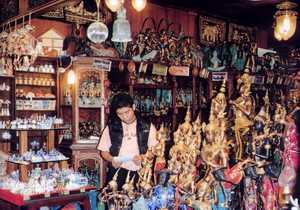
Now here’s a shopper’s haven. If you’re into a real shopping experience, you should try the Chatuchak weekend market in Thailand. Situated right next to Chatuchak Park in Bangkok, adjacent to the Kamphaengphet metro rail station, the weekend market is where you can get great deals on all sorts of goods, from clothes, electronics, dry goods, farm produce, and foodstuffs. You get good prices whether on wholesale or retail goods, all at unbelievably low prices. You also get to enjoy thousands of food stalls serving a variety of Thai delicacies–you should kow that Thailand is famous for its street delicacies.
And here’s even better news, Chatuchak is also situated near several mid-range to high-end hotels, so you don’t have to go far from the comforts of your hotel to enjoy all-day cheap thrills.
Areas
The Chatuchak weekend market is basically divided into several zones:
- Trees
- Secondhand goods
- Pets
- Food & Drink
- Fresh & Dry Food
- Ceramics, Collectables, and Home Appliances
- Clothes & Dresses
- Books
The weekend market is actually not only open on weekends. All shops are open from 8:00 a.m. to 6:00 p.m. Fridays to Sundays. Plant and tree shops, meanwhile, are also open Wednesdays and Thursdays from 7:00 a.m. to 6:00 p.m.
Originally posted on June 23, 2010 @ 9:03 am